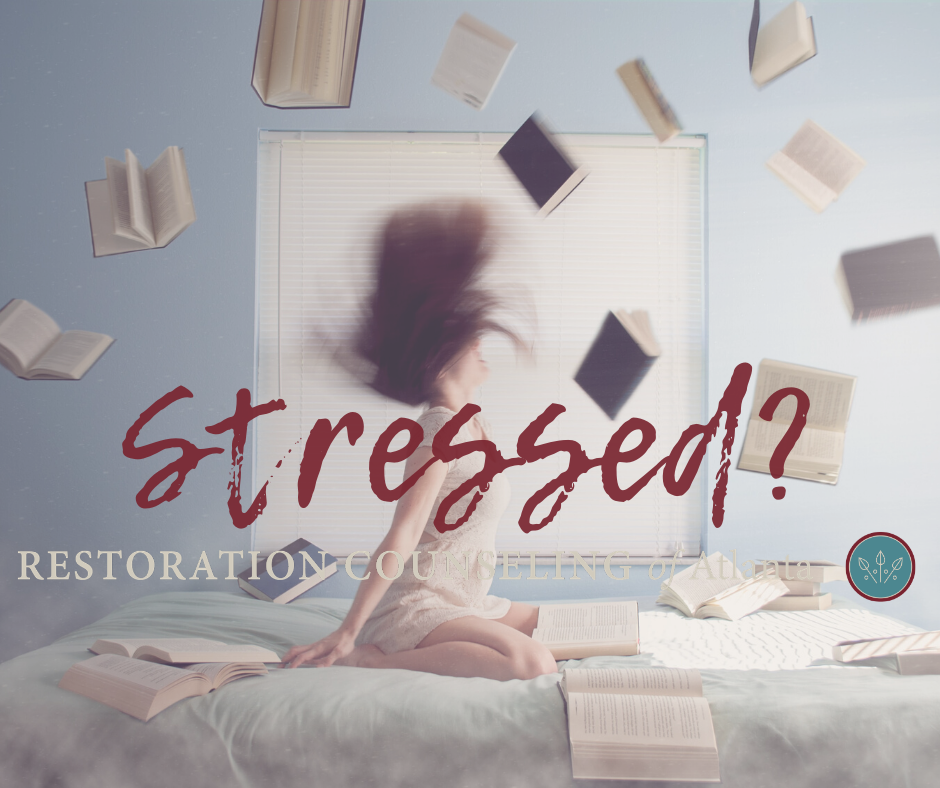Why We Need Stress Management Skills
Thoughts from My Sofa:
Stress? I guess I have to admit it. I’ve always thought I adapt quickly and easily to changing circumstances. I could problem solve, make decisions, and move forward with confidence and make it all look seamless. So, of course, I thought I was OK with change and having my routines shaken up.
But this pandemic has taught me that I am so not OK with it.
Signs of Stress
At first, I tried to deny that I was affected at all and continued my usual charge forward with as much normalcy as possible. But, within the first week, I felt overwhelmed and experienced irritability, sadness, frustration, and even anger. This was because I was not allowed to go about my usual schedule. I’ve had to get creative in areas that I do not feel and did not want to be creative (picture the petulant child here). This brought up those old feelings of insecurity and vulnerability which nobody enjoys feeling. Usually, I can reframe these uncomfortable emotions as motivation to learn something new and move ahead. Instead, this time, I felt crushing fatigue. I lost motivation to do much of anything, which this “type-A” personality found confounding.
What are you doing?
As a result, I had to start practicing what I preach to clients. I had to do some mindful introspection to figure out what was going on so I could stop this barrage of unsettling feelings. What I first noticed wasn’t exactly flattering – I enjoyed being lazy! I think most of us are enjoying some perks and happy points of having to stay home (working in PJs, not rousing kids before sunrise to catch the school bus, less go-go-go in general, etc.). Surprisingly, I found that when given this opportunity, I completely indulged in binge-watching TV and sitting on my bum snacking. I was annoyed that I had any obligations whatsoever, including having to walk the dog or cook dinner for my family. This was new territory for me! I’ve never considered myself lazy and usually have more going on in the average week than looks feasible on paper. And I rarely resent my family for needing to be fed! What was happening?
Why are you doing it?
To understand this, I kept doing mindful check-ins with myself. I talked with my husband and realized this wasn’t, in fact, a massive change in personality but STRESS! Having to stretch myself beyond my comfort zone in so many areas was causing stress. I was stressed about my schedule being messed up. And I was stressed about having to adapt to a slower, more relaxed life. How weird is that?! But it’s my truth. I am addicted to a busy, packed schedule because that creates a flow to my life. That feels more comfortable to me than having pockets of time to fill with – what? My recent choices of watching TV, sleeping in, and snacking were not satisfying. My mind raced with multiple “I should be doing” thoughts that were laden with guilty self-judgment.
What needs to change?
Consequently, I must take my own advice and start adding some self-grace and self-care into my routine. Obviously I need it or I wouldn’t have enjoyed my couch so much! So I’m working to find a better balance as I settle into a new schedule. I’m shifting my energy from busyness with my comfortable and familiar routine, to finding creative ways to do the important things: connecting with family, clients, and friends; exercising without my favorite gym equipment; finding ways to help others during this time of crisis; and being mindful about resting.
Change is worth it!
Every area is challenging, but I’m feeling more optimistic and energetic as I learn to enjoy this new, temporary normal. It is doable, most days. But on those days that I feel overwhelmed or frustrated about having to adapt again, I’m giving myself a break. No self-judgment; firmer boundaries to say “no” or “not now”; taking whatever respite I need for a short time, and reframing these feelings as a chance to learn more about myself and my needs.
After all, this started with me realizing that I don’t like change. However, I’m learning that I can do it as long as I manage my stress mindfully. If you’re feeling stressed, here are some tips for you.
Stress Management Tips ¹
- Remember that stress isn’t a bad thing! Stress motivates us to work toward solving our problems. Reframing thoughts to view stress as an acceptable emotion, or as a tool, has been found to reduce many of the negative symptoms associated with it. The goal is to manage stress, not to eliminate it.
- Talk about your problems, even if they won’t be solved. Talking about your stressors—even if you don’t fully understand or resolve them—releases hormones in your body that reduce the negative feelings associated with stress. Time spent talking with friends and loved ones is valuable and worth taking time from other obligations.
- Prioritize your responsibilities. Focus on completing quick tasks first. Having too many “to-dos” can be stressful, even if none of them are very big. Quickly knocking out the small tasks will clear up your mind to focus on larger responsibilities. (Don’t overlook the fact that one big responsibility could be rest and self-care! (See #4 and #6!)
- Focus on the basics. Stress can start a harmful cycle where basic needs are neglected, which leads to more stress. Make a point to focus on your basic needs, such as eating well, keeping a healthy sleep schedule, exercising, and other forms of self-care.
- Have a variety of interests and activities. People who are overinvolved in one aspect of their life often struggle to deal with stress when that area is threatened. Balance your time and energy between several areas, such as your school/career, family, friendships, and personal hobbies.
- Set aside time for yourself. Personal time usually gets moved to the bottom of the list when things get hectic. However, when personal time is neglected, everything else tends to suffer. Set aside time to relax and have fun every day, without interruptions.
- Keep things in perspective. In the heat of the moment, little problems can feel bigger than they are. Take a step back, and think about how important your stressors are in a broader context. Will they matter in a week? In a year? Talking or writing about your stressors will help you develop a healthier perspective.
References
¹ TherapistAid LLC. (2017). Stress Management Tips. https://www.therapistaid.com/therapy-worksheet/stress-management-tips/stress/none
Roswell location
paige@restorationcounselingatl.com, ext. 157
Paige provides a safe and comfortable atmosphere, where clients can explore the challenges they are facing. She also believes in addressing the individual’s entire personhood, assessing needs in all domains of life instead of focusing solely on mental health needs. Paige works with adults and teens around issues of depression, anxiety, mood disorders, relationship issues, trauma, PTSD, and life transitions.


 by
by